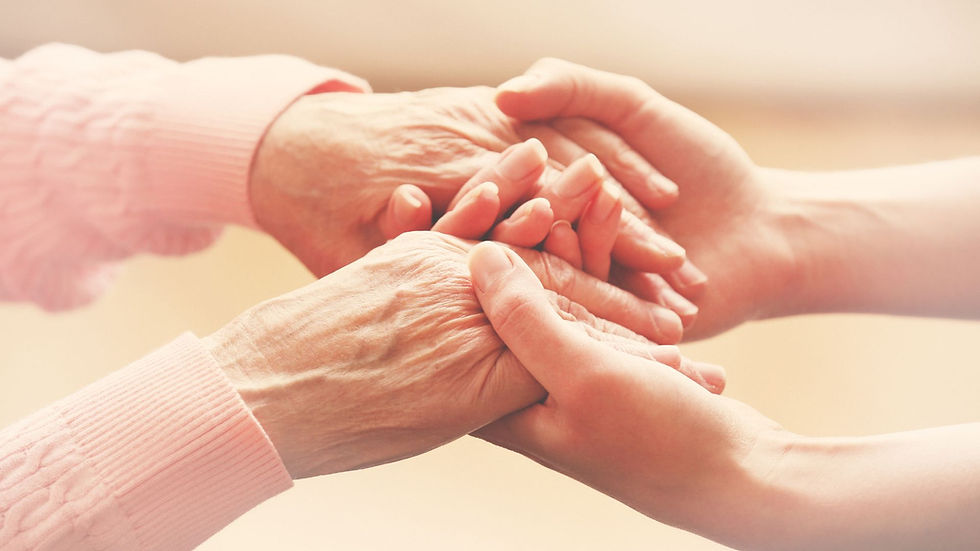Gentle Care, Healthy Skin: A Comprehensive Guide for Caregivers on Bed Sore Management
- Apex Professional Care
- Mar 25, 2024
- 3 min read
Updated: Mar 29, 2024

Elderly people with limited mobility frequently suffer from bed sores, often referred to as pressure sores or pressure ulcers. Bed sores are painful skin conditions. Long periods of time spent in one posture put people at risk of developing pressure soreness in one area of their bodies. Any portion of the body can develop sores, and they can spread rapidly. The extent of a pressure sore is not always visible on the skin's surface since the sore forms a rounded area of damage. Usually, the damage has already reached much deeper levels by the time signs of it surface on the skin's outer layers.
Although manageable, pressure ulcers improper management may result in medical implications. More severe bed sores should be examined by a doctor, but early symptoms of skin irritation can be managed at home. Seek a professional assessment to find out the bed sore's stage and whether any infection symptoms are present. Make sure you get a correct diagnosis before starting a home treatment program.
10 Tips on Caring for Bed Sores
Regular Position Changes In order to relieve pressure on sensitive regions and stop bed sores from developing, move the elderly person at least every two hours.
Use Supportive Bedding Invest in cushions, pillows, and mattresses that disperse weight evenly and relieve strain on sensitive skin areas.
Keep Skin Clean and Dry When performing your daily hygiene routine, gently clean and dry the skin. Avoid forceful rubbing and use a mild, fragrance-free soap.
Inspect Skin Daily Check the skin routinely for any changes in appearance, discoloration, or redness. Timely intervention is made possible by early detection.
Optimize Nutrition Offer a diet that is well-balanced and high in protein, vitamins, and minerals to help the skin recover itself and to maintain general skin health.
Encourage Hydration Make sure the elderly person has enough water to drink; staying hydrated is crucial for good skin. Seek advice from medical authorities regarding recommended daily intake of water.
Use Barrier Creams Use lotions that serve as moisture barriers to shield the skin from moisture and lessen the chance of irritation. Speak with medical professionals about appropriate products.
Minimize Friction and Shear To reduce friction and shear forces while moving an elderly person, use smooth, soft linens and elevate them instead than dragging them.
Follow Medical Guidance Follow any medicine and wound care instructions that medical professionals prescribe. Inform them of any modifications to the senior's condition.
Promote Gentle Exercises Encourage gentle physical activity, such range-of-motion exercises, to enhance blood flow and avoid rigidity. Consult a healthcare provider for advice on suitable workouts.
Bed sores in elderly individuals with limited mobility are a serious health concern. They can be painful and cause serious complications if not managed properly. To prevent bed sores, follow proper care techniques and medical advice. Regular position changes, supportive bedding, and maintaining clean, dry skin are essential. A balanced diet, hydration, and barrier creams can aid in skin recovery. Daily skin inspections and medical advice are crucial for early detection and treatment. Caregivers can help elderly individuals minimize the risk of developing bed sores and improve their quality of life. If you want to learn more about Elderly Care, you can explore the compassionate expertise of Apex Professional Care in Elderly Care. Explore our informative articles to empower your journey in caregiving and nurturing your elderly loved ones.

Comments